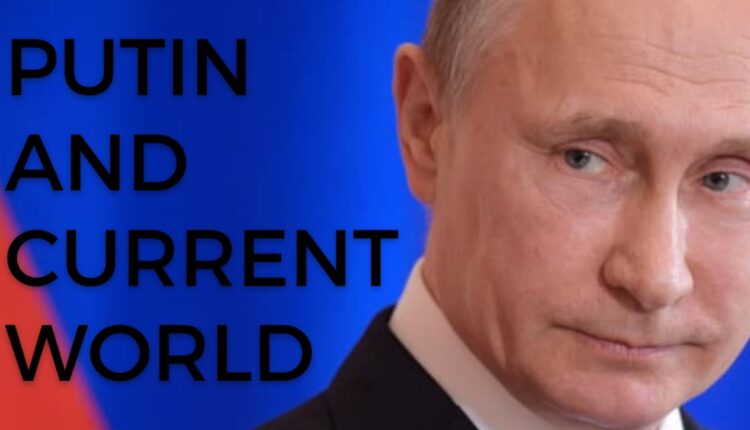Putin and globalization: The current scenerio
In its wake, the Japanese yen is jojoying at a record low of 141 against the dollar, the euro is hovering around 99, the pound sterling is hovering around 1.15 and the rupee is testing a level of 80 against the dollar.
TNI Bureau: The Dollar Index, which tracks global financial conditions, hit a record high of 109.98, up almost 14 percent in six months. In its wake, the Japanese yen is jojoying at a record low of 141 against the dollar, the euro is hovering around 99, the pound sterling is hovering around 1.15 and the rupee is testing a level of 80 against the dollar.
In sharp contrast, and ironically, the only currency that has performed well is the Russian ruble, which has appreciated from 104 to 60 rubles per dollar since February.
The factoid illustrates how the doctrine of economic sanctions as a tool of deterrence has impacted Russia and the world. The war in Ukraine is now 192 days old and continues unabated. It is estimated that over 9 million Ukrainians have been forced to flee their homes since February 24. The death toll depends on who is telling the story and could be in the tens of thousands. Whether there will be a winner is unclear! What is clear and undeniable is that the cost of sanctions has led to the globalization of pain.
The inadequacy of the sanctions and their impact on Russia and other countries is reflected in the IMF’s July review of global growth. The IMF slashed global growth to 3.2 percent from 3.6 percent in April and downgraded growth in all major economies, including the US, UK, Germany, France, Canada, Japan, Italy, Spain and India. The notable exception: Russia – its GDP growth was boosted by 2.5 percent. In fact, IMF chief economist Pierre-Olivier Gourinchas explained that higher energy prices had kept Russia afloat despite Western sanctions.
The sanctions were defined in superlatives – as “unprecedented” and “like none the world had seen before” – and imposed by the US, EU and other NATO allies within hours of the launch of Russia’s “military special operation”. A parade of punitive measures ensued, triggering an arming of commerce and finance. For the global economy, just recovering from the pandemic and weighed down by the excesses of easy money, this was truly the final straw that broke the camel’s back. The consequence is the food, fuel and livelihood crises plaguing developed and developing economies.
Support Independent Journalism? Keep us live.
The price of natural gas in Europe is now estimated at around US$500 per barrel of oil equivalent. UK household energy bills could skyrocket five times to £5000 a year. Gasoline prices around the world fuel rhetoric and anger. Countries are trying to install LNG terminals, look for new sources of gas and extend the life of nuclear power plants. Emerging markets – particularly net energy importers like India – face the twin burdens of imported inflation and widening current account deficits.
The irony is that while the world grapples with the energy crisis, Russia’s fuel export revenues are expected to rise 38 percent to over $347 billion. Thanks to the opportunity created by sanctions, higher fuel export volume and rising prices. In fact, Russia is reportedly considering parking up to $70 billion of its surplus energy export earnings in the Chinese yuan.
On Friday, the Group of Seven (G7) finance ministers presented another round of measures. They agreed to “impose a price cap on Russian oil aimed at cutting revenue for Moscow’s war in Ukraine while avoiding price spikes.” The critical details – which countries are ready and what the price cap per barrel would be – have yet to be decided. The outlines and content of this major measure are just as vague as the idea itself.
Newton’s law states that every action, even if it is not an equivalent reaction, will elicit an opposite reaction. Almost on cue, Russian energy giant Gazprom has announced that natural gas supplies through the key Nord Stream pipeline will not resume due to “technical problems”. The effects are bad. The IMF’s World Outlook in July warned that “a complete halt to Russian gas exports to European economies in 2022 would significantly increase global inflation through higher energy prices.”
It is true that Russia’s invasion of Ukraine required a response from the global community. It should also be borne in mind that previous episodes of sanctions have not produced the intended results. It cannot be that Europe’s energy dependence on Russia was unknown. It’s also no secret that Russia and Ukraine made up a large part of the global food basket. The bitter fact is that in an interdependent globalized economy, measures like sanctions against big trading nations are ineffective.


Comments are closed.